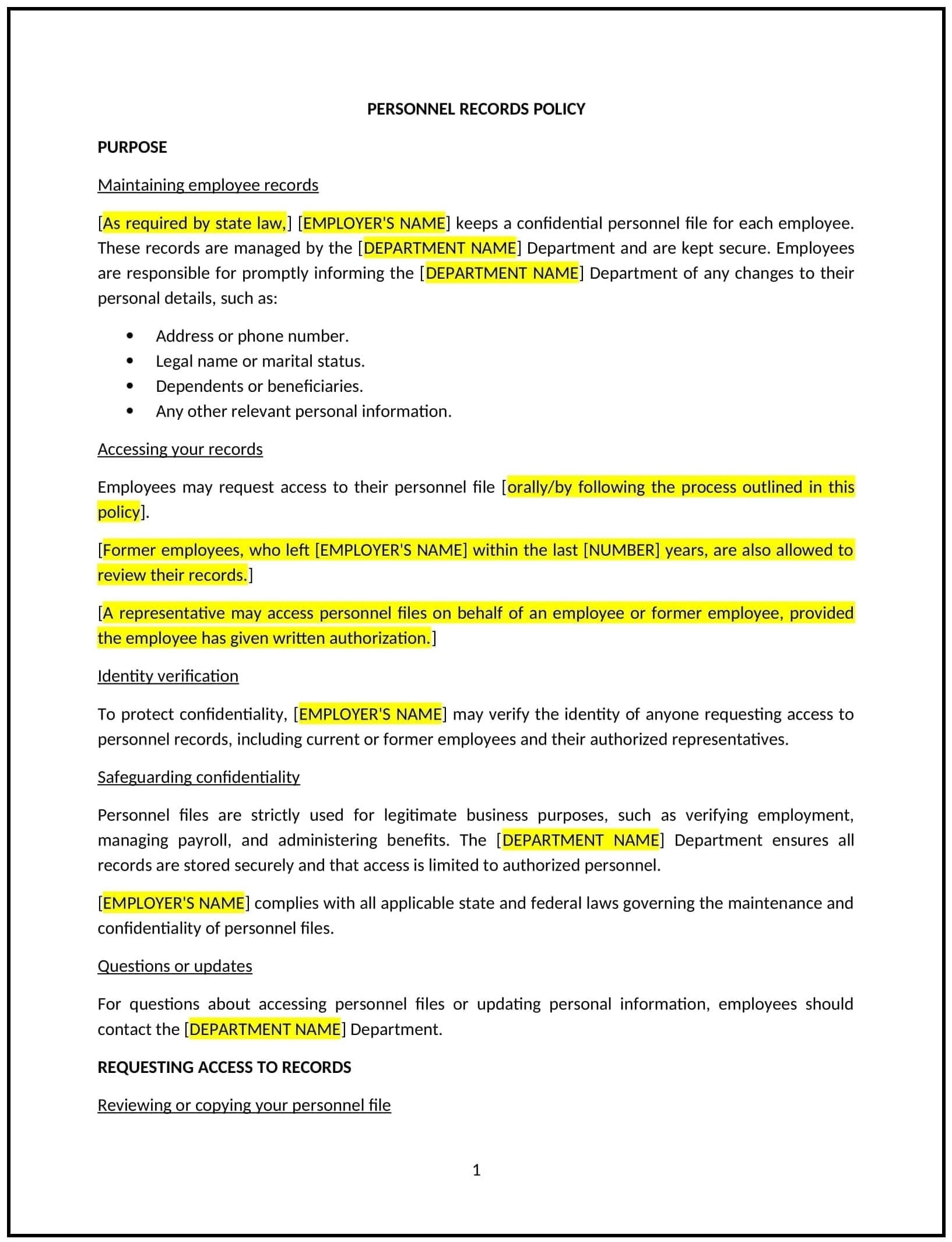Got contracts to review? While you're here for policies, let Cobrief make contract review effortless—start your free review now.

Customize this template for free
Personnel records policy (Oregon)
This personnel records policy is designed to help Oregon businesses manage employee records, including hiring documents, performance evaluations, and payroll information. It outlines procedures for recordkeeping, access, and retention.
By adopting this policy, businesses can ensure accurate recordkeeping, maintain compliance with state and federal laws, and protect employee privacy.
How to use this personnel records policy (Oregon)
- Define record types: Clarify what constitutes personnel records, such as resumes, performance reviews, and payroll data.
- Establish access controls: Specify who can access personnel records and under what circumstances.
- Set retention periods: Outline how long records should be retained, based on legal requirements and business needs.
- Protect privacy: Ensure personnel records are stored securely and accessed only by authorized individuals.
- Train employees: Educate staff on handling personnel records responsibly and maintaining confidentiality.
- Review and update: Assess the policy annually to ensure it aligns with evolving legal requirements and business needs.
Benefits of using this personnel records policy (Oregon)
This policy provides several advantages for Oregon businesses:
- Ensures accuracy: Promotes accurate and organized recordkeeping, reducing errors and disputes.
- Enhances compliance: Aligns with state and federal laws, such as the Fair Labor Standards Act (FLSA) and Oregon recordkeeping requirements.
- Protects privacy: Safeguards employee information from unauthorized access or disclosure.
- Reduces legal risks: Minimizes the potential for penalties or lawsuits related to recordkeeping errors.
- Supports accountability: Clearly outlines procedures for managing personnel records.
Tips for using this personnel records policy (Oregon)
- Communicate clearly: Share the policy with employees and include it in the employee handbook.
- Provide training: Educate staff on handling personnel records responsibly and maintaining confidentiality.
- Monitor compliance: Regularly review recordkeeping practices to ensure adherence to the policy.
- Address issues promptly: Take corrective action if personnel records are mishandled or accessed improperly.
- Update regularly: Revise the policy as needed to reflect changes in legal requirements or business needs.